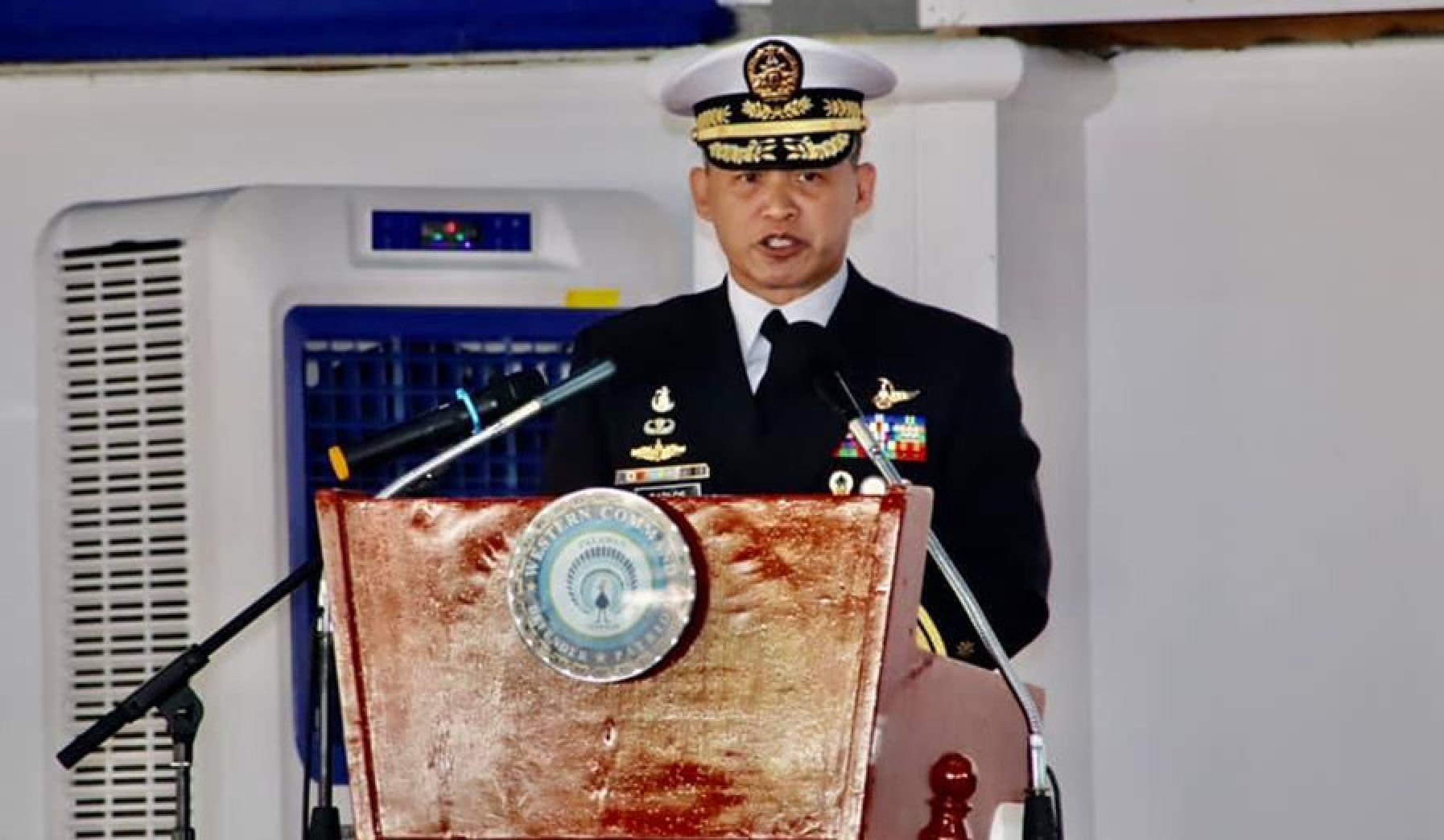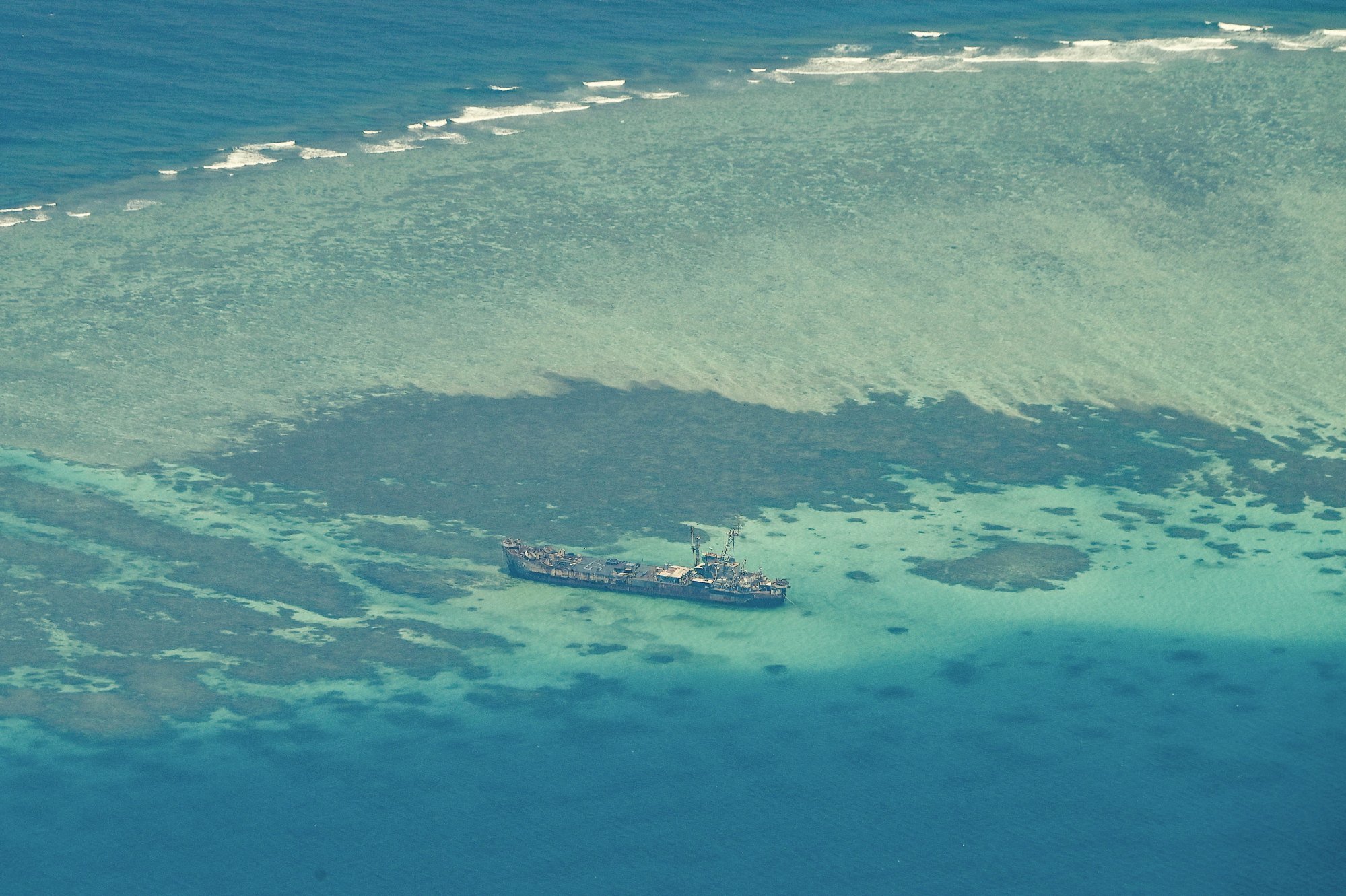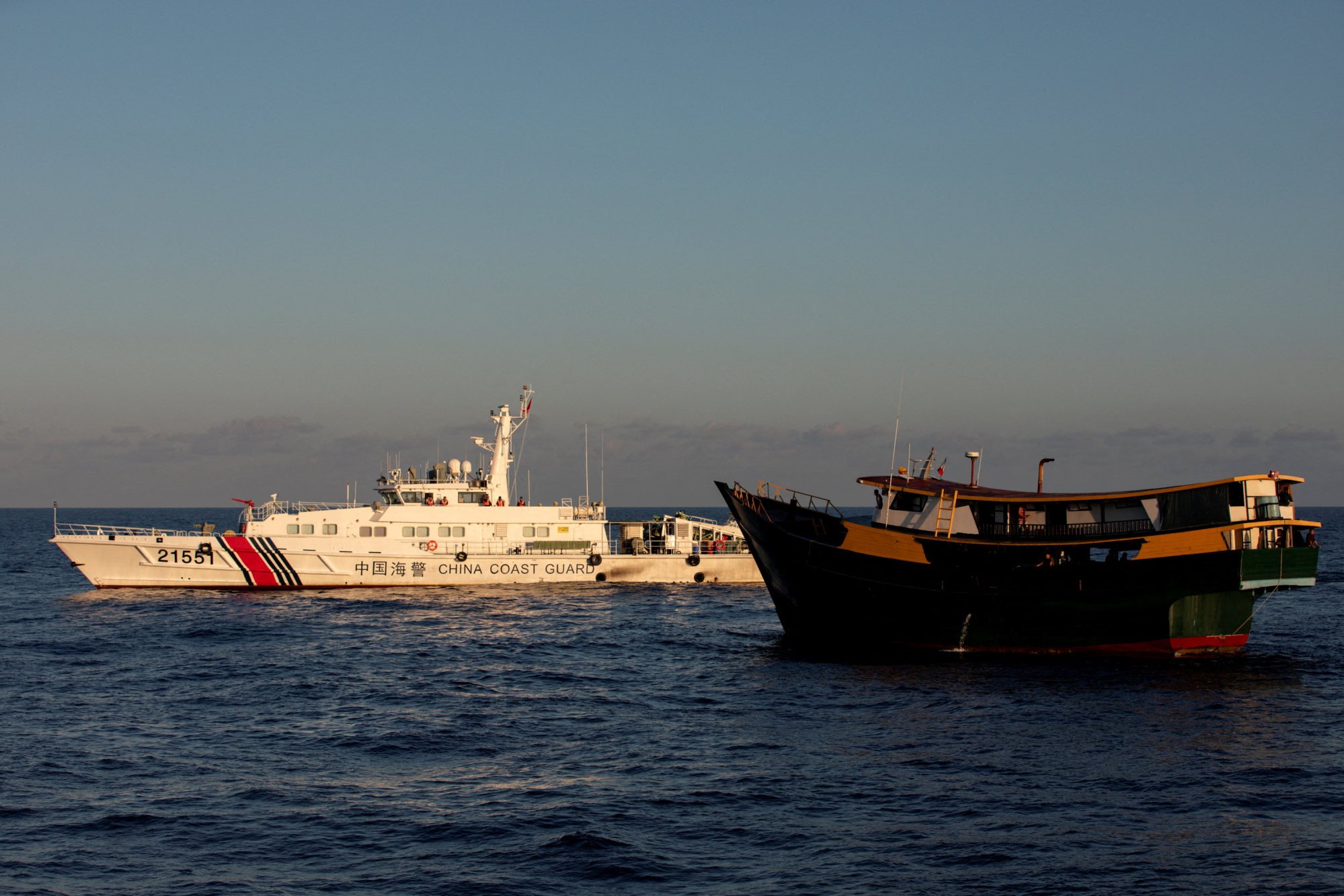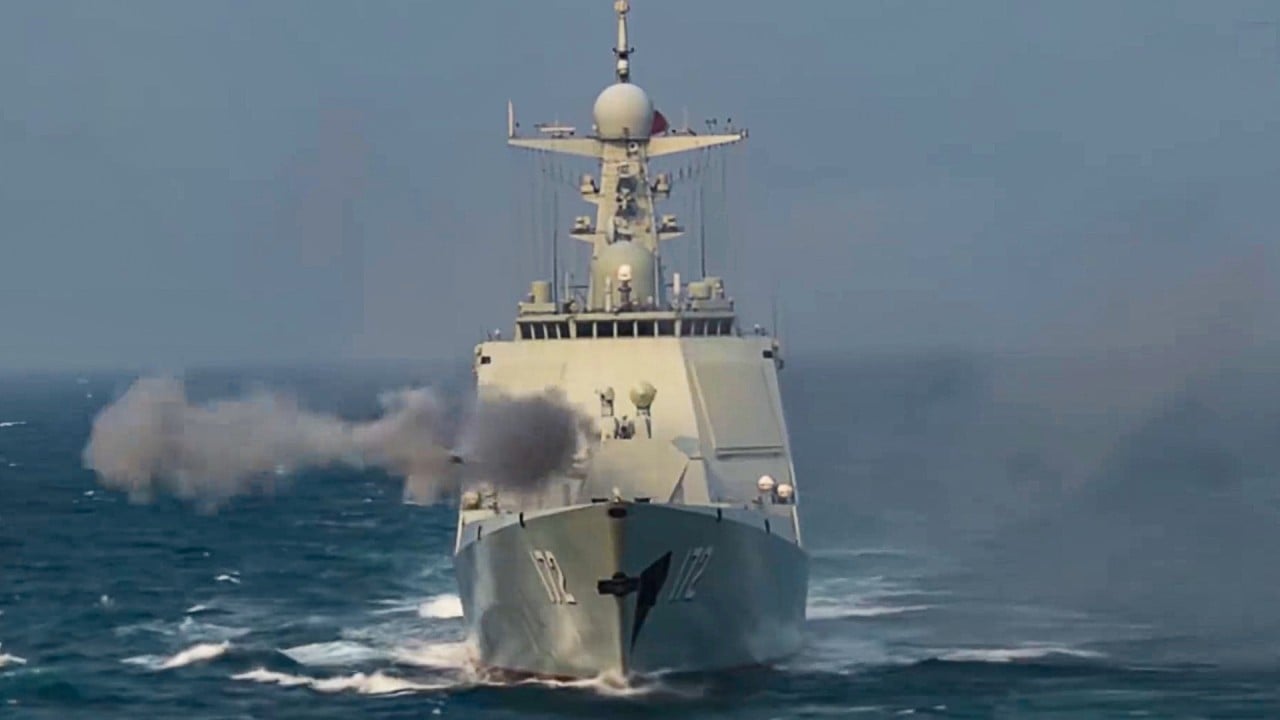
South China Sea: Philippine admiral at centre of ‘new deal’ saga breaks silence on alleged pact with Beijing
- Vice-Admiral Alberto Carlos admits talking to a Chinese military attaché on ways to reduce tensions in the West Philippine Sea
- Carlos denies giving consent for the conversation to be recorded and insists ‘I have not compromised the country’s territorial integrity’
But Carlos, who was recently removed from his command, said under oath that a transcript of their conversation, given to local media by the embassy, did not accurately reflect their brief conversation.

“I did not enter into any secret deals that will compromise the interests of our country,” Carlos told the committee. “I have not compromised the country’s territorial integrity, I have not given up our sovereign rights and entitlement. I am a soldier for the Filipinos. I remain a loyal servant of the republic.”
Carlos’ removal from his post as commander of the Armed Forces of the Philippines’ Western Command was announced on Saturday by Defence Secretary Gilberto Teodoro.
Carlos was replaced two weeks after taking “personal leave” following the embassy’s release of the transcript.
Philippine President Ferdinand Marcos Jnr, his National Security Adviser Secretary Eduardo Año and defence chief Teodoro have separately denied knowledge of any such agreement.

The alleged transcript says Carlos and the Chinese embassy official had struck a so-called 1+1 deal in which Manila would deploy only one coastguard vessel and one resupply boat, while Beijing would respond with one coastguard vessel and a fishing boat.
Carlos told the senate committee that in early January he received a phone call from the Chinese military attaché, whom he said he had met on “several occasions in diplomatic events” and other activities over the last several years.
He identified the attaché as “Senior Colonel Li” but could not recall his first name.
Carlos said Li’s name and number were recorded in his phone, and he answered the call thinking it was a social greeting from Li to start off the new year.
During the call, which Carlos said lasted from three to five minutes, the pair discussed “exploring ways to de-escalate or to reduce the tension in the West Philippine Sea, in my area of operations”.
The West Philippine Sea is Manila’s term for the section of the South China Sea that defines its maritime territory and includes its exclusive economic zone.

When asked whether their conversation included a discussion and agreement on “the new model”, Carlos emphatically said, “We did not discuss the new model. We did not discuss the term common understanding, [the] new model, were not part of our conversation.”
Carlos was referring to the pronouncement made by Chinese Foreign Ministry spokesman Wang Wenbin during a press conference on April 22, in which Wang had said: “China and the Philippines reached common understandings on properly handling the situation at Ren’ai Jiao [Second Thomas Shoal]. These common understandings were reached not only during the Philippines’ previous administration but also its current administration.”
When asked by senate defence committee chairman Jinggoy Estrada about “the gist” of their conversation, Carlos said, “We talked about how to reduce the tension … in the West Philippine Sea, particularly during our rotation and resupply mission in Ayungin Shoal.”
On whether he and Li had hit upon a solution for reducing tensions, Carlos said they were “exploring ways … to reduce the RoRe [rotation and resupply missions] where our supply ships were watered down. And we were planning for the next RoRe”.
Carlos said he would “be happy” to give further details in a closed-door session.
When asked if he had allowed Li to record the conversation, Carlos said: “I have not given my consent to record to anybody and I have not been asked for permission.” He also said it never entered his mind that their conversation was being recorded.
Carlos also testified that Li had sent him a message through the social media app Viber on May 20 “but I did not acknowledge” receiving it. He promised to share the contents of the message in an executive session.
When asked whether he ever talked to or engaged in any negotiations with any Chinese or foreign diplomat over the West Philippine Sea, Carlos replied, “Negative, sir.”
Carlos is the most senior Philippine military official to have taken part in the military-to-military exchange programme between Beijing and Manila. In 2008, he took a general staff course at the People’s Liberation Army (Navy) Command College in Nanjing.
According to Philippine military officials who declined to be identified, the Chinese embassy had, in 2022, started sponsoring events for Filipino alumni of these exchanges.
The senate committee said it was drafting a revision of the existing anti-espionage act in light of what happened to Carlos.


